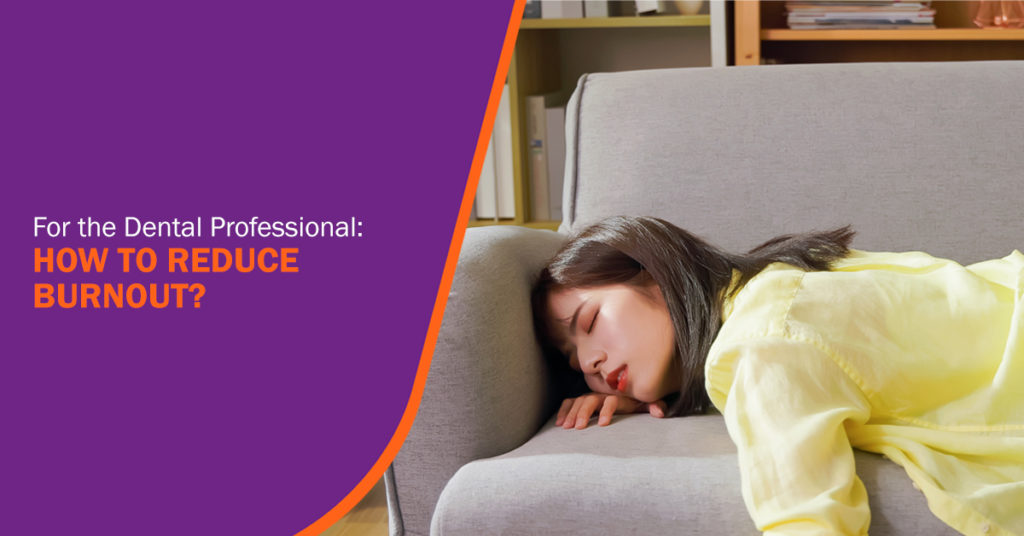Workplace burnout is on the rise, and dental professionals are not spared from it. I had a colleague who recently asked me privately in a clinician meeting on how to reduce burnout in the workplace. I chatted with Prof Ansgar Cheng, Dental Specialist in Prosthodontics, to find out more. Prof Cheng has been treating patients in our clinic at Mount Elizabeth Medical Centre since 2003.
What exactly is workplace burnout?
Burnout can be described by three aspects[1]:
- Increased emotional exhaustion: feelings of energy depletion or exhaustion
- Increased depersonalization: mental distance from one’s job or feelings of negativism or cynicism related to one’s job; and
- Reduced personal accomplishment: decline in professional efficacy and feelings of competence
What are some tips to reduce burnout?
Here are a few tips on adjustments that Prof Cheng makes to reduce burnout.
- Engage patients (be-friend them) by establishing a friendship, so that every treatment is no longer work and becomes a time to meet friends.
- Engage fellow colleagues in your clinical work, either verbally or clinically. Bouncing ideas will make the process more fun as there will be new angles revealed. One way is to semi-routinely explain the condition/process to the nurses/colleagues during the procedure (with patient permission) and/or after the clinical appointment. This way, a win-win-win situation; our colleagues get enriched, clinicians reinforce their knowledge, and patient appreciate the extra TLC involvement. This separates making a difference and merely a clinical execution. No one gets burnout when they are making a difference and adding values to other fellow human beings.
- Inculcate a habit to share little victories or defeats with loved ones at home (beyond workplace). You will be surprised with how much sympathy, empathy or appreciation your family members will show (kids included). This is of much educational value to the children, and is a learning/reflection for oneself too.
- Engage in teaching (if possible), may it be professionally at NUS or other arena at large. That is the best way to showcase your capabilities and allow other people to have a platform to appreciate you. It also reinforces and improves your own professional knowledge, another win-win situation (with the sacrifice of time).
- Engage in a good hobby or exercise (or two) as it takes your mind off your daily occupation. It gives you some “me time”. While most of us are born healthy, it takes “real” exercise, eating and sleeping well to upkeep our well-being. “Real” exercise is different from mere activities. It is something that will make you pant a bit, sweat a lot and feel the pounding of your heart for at least 150 minutes a week[2].
- As mentioned, one of the missions of a clinician is to make a difference in patients’ lives and the good thing is that most patients appreciate deeply the treatment and care that has been given to them. However, understanding that dentistry is work, and one of the many purposes is to put food on the table. Remember, that is not the sole purpose.
- For goodness sake, take some holidays, no matter how much you love work.
If you find that you are still struggling with workplace burnout, do speak to a mentor or seek professional help. Do not ignore feelings of workplace burnout as it will not go away overnight. Ignoring or neglecting these feelings will only cause them to worsen in terms of frequency and severity, risking the possibility of making irrational decisions with long term implications. In addition to carrying out self-help recommendations, it is just as important to seek help and accept help (when it is needed).
[1] Maslach C, Jackson SE, Leiter MP. The Maslach Burnout Inventory Manual. 3rd ed. Palo Alto, CA: Consulting Psychologists Press;1996.
[2] World Health Organisation, Physical activity, https://www.who.int/news-room/fact-sheets/detail/physical-activity






